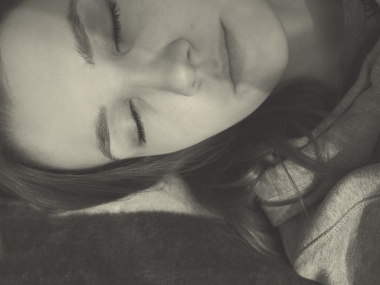Insomnia is a sleep disorder characterized by difficulty falling asleep or staying asleep during the night. People suffering from insomnia may also wake up too early in the morning and have difficulty falling back asleep. Insomnia can be temporary or chronic, and can have negative effects on both physical and mental health.
What are the symptoms ?
Symptoms of insomnia can include :
-
Difficulty falling asleep or staying asleep during the night
-
Waking up frequently or too early in the morning
-
Feeling tired and sleepy during the day
-
Difficulty concentrating or remembering things
-
irritability, anxiety or depression
-
Changes in eating or bathing habits (e.g., increased appetite or thirst).
These symptoms can vary in intensity and frequency depending on the person and the type of insomnia they suffer.
Which plants are effective in combating insomnia ?
There are several plants that can be used to treat insomnia, including :
-
Valerian : this plant is often used for its sedative and calming properties. It can help improve sleep quality and reduce night-time awakenings.
-
Chamomile : this plant is renowned for its calming and soothing properties. It can help relieve anxiety and make it easier to fall asleep.
-
Linden : this plant is often used for its sedative and relaxing properties. It can help improve sleep quality and reduce nocturnal agitation.
-
Lavender : this plant is known for its calming and relaxing properties. It can help relieve anxiety and improve sleep quality.
It's important to note that these plants can be used alone or in combination with other plants or medications.
Which essential oils to use ?
There are several essential oils that can be used to treat insomnia, including :
-
Lavender essential oil : this oil is known for its calming and relaxing properties. It can help relieve anxiety and improve sleep quality.
-
Roman chamomile essential oil : this oil is renowned for its soothing and sedative properties. It can help facilitate sleep and reduce night-time awakenings.
-
Marjoram essential oil : this oil is often used for its calming and relaxing properties. It can help relieve anxiety and improve sleep quality.
-
Mandarin essential oil : this oil is known for its soothing and sedative properties. It can help facilitate sleep and reduce night-time awakenings.
It is important to note that these essential oils can be used alone or in combination with other essential oils or medications.
Using homeopathy
There are several homeopathic strains that can be used to treat insomnia, including :
-
Coffea cruda : this strain is often used to treat sleep disorders linked to excitement or excessive thinking. It can help improve sleep quality and reduce night-time awakenings.
-
Chamomilla : this strain is often used to treat sleep disorders linked to irritability or anger. It can help relieve agitation and improve sleep quality.
-
Passiflora incarnata : this strain is often used to treat sleep disorders linked to anxiety or mental agitation. It can help relieve anxiety and facilitate sleep.
-
Ignatia amara : this strain is often used to treat emotional or stress-related sleep disorders. It can help relieve anxiety and improve sleep quality.
It's important to note that these homeopathic strains can be used alone or in combination with other homeopathic strains or medications.
Lifestyle advice
There are several hygienic-dietary rules that can be followed to prevent or treat insomnia, including :
-
Maintain a regular sleep routine : it's important to go to bed and get up at set times every day, even on weekends, to help regulate the sleep cycle.
-
Create a favorable sleep environment : it's important to maintain a comfortable temperature, limit light and noise, and choose a comfortable mattress and pillow to help facilitate falling asleep.
-
Avoid stimulating foods and drinks before bedtime : it's important to avoid caffeine, alcohol, tobacco and spicy foods before bedtime, as they can disrupt sleep.
-
Regular physical activity : regular exercise can help improve sleep quality and reduce sleep disorders.
-
Manage stress and anxiety : it's important to manage stress and anxiety by using relaxation techniques, such as meditation or deep breathing, to help facilitate sleep.
It's important to note that these hygienic-dietary rules can be adapted to suit individual needs, and must be followed regularly to be effective. If sleep disorders persist, it is advisable to consult a doctor or healthcare professional for appropriate diagnosis and treatment.
Updated on 31 October 2023 at 08:08







